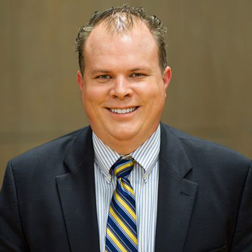Teaching & Learning
21st Century Teaching & Learning at THE STORM KING SCHOOL
Overview
At The Storm King School, the ultimate goal for both teachers and students is the achievement of deeper learning. Our faculty relies on approaches that actively engage students as they master the necessary content in various disciplines while encouraging the perfection and application of academic and life skills through experiential, project-based learning experiences. Discussion and collaboration are active components of virtually all of our classes. During direct instruction, faculty members engage students through frequent checks and questions.
Curriculum at Storm King is built to spark creativity, encourage risk-taking, promote critical thinking, and foster collaboration. Broad course offerings and a flexible academic schedule allow students to discover their passions and take a leading role in the creation of their own personal trajectories. Their enthusiastic participation, not only in academics, but in everything the School has to offer, results in a love of learning and sets the foundation for them to become life-long inquirers.
Preparation for Learning in the 21st century
In the traditional classroom, teachers dominate discussions and the delivery of information. They make all decisions regarding instruction, content is the most important aspect of classes, and students are asked to master knowledge through constant drill and practice. In a classroom preparing students for a world where information is ubiquitous and at one’s fingertips, and where students may evolve through many career paths, the classroom becomes a more collaborative place. There, students must take control of their own learning, teachers must function as facilitators and guides, and students must work collaboratively with their teachers and one another to share ideas and learn.
As much as possible we ask our teachers to insure that learning grows from authentic, interdisciplinary problems and projects. In addition, we embrace learning that extends beyond the classroom. While content is a necessary focus, the way information is processed, verified, and used is at the forefront. Students need to understand how they learn and evaluate, make decisions, and master knowledge by actually constructing it themselves.
What Our Faculty Teach and Our Students Learn:
While students attend classes daily in our classrooms, we extend learning beyond direct instruction in many ways. Teaching and learning are created with a focus on project-based application, trips, collaborative and interdisciplinary work, and experiential vehicles such as: Community Service, Black Rock Forest, and the surrounding Hudson Valley, extracurricular activities, athletics, and other experiences built in to our program.
21st Century Teaching and Learning – what changed?
In any generational period, the goal of education is to prepare young people for their careers and roles as citizens. A focus of independent school education has always been building character and positive traits that will equip individuals, not only for college and careers, but, for meaningful lives in whatever communities they find themselves.
Throughout most of the 20th century, this meant teaching students the fundamentals of traditional disciplines and subjects: English, foreign language, mathematics, science, history, the arts, and physical education and health. In most cases, these subjects were taught with the focus of delivering a high level of predetermined content and skills.
As the 20th century evolved, key advancements impacted schools. The development of the computer and its increasing portability increased the amount of available information and the ability to share it globally. In the early 1900s, most information was held in books and libraries and the minds of a small number of experts in any given field. As the millennium approached, anyone with a cell phone could carry a large percentage of the world’s information in their pocket. Because of these changes, the priorities of what students need to know have changed rapidly.
In the past, schools prepared young people for lives and careers that largely followed the pattern of their parents. Today, it has become increasingly common for individuals to change career paths multiple times during their lives. Therefore, schools must prepare students to be flexible; equipping them to meet our time’s ever-changing parameters and access new careers that may not have existed at the time they started school.

